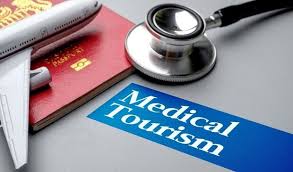
Revolutionizing Healthcare: The Future of Precision Medicine
The Evolution of Medicine: From Ancient Remedies to Modern Breakthroughs
Medicine, the science and practice of diagnosing, treating, and preventing diseases, has evolved significantly over centuries. From ancient civilizations using herbs and rituals to modern advancements in technology and pharmaceuticals, the field of medicine continues to push boundaries and improve healthcare outcomes.
Ancient Medicine
Ancient civilizations such as the Egyptians, Greeks, and Chinese laid the foundation for medical practices with their knowledge of herbs, surgeries, and medical texts. Practices like acupuncture in China and the use of opium in Egypt showcased early attempts at managing pain and treating illnesses.
The Middle Ages
During the Middle Ages, medical knowledge was heavily influenced by religious beliefs and superstitions. Monks and nuns often provided care in monasteries, using herbal remedies and prayer to heal the sick. The bubonic plague outbreaks during this time spurred advancements in public health and quarantine measures.
The Renaissance
The Renaissance period saw a resurgence of interest in human anatomy and scientific inquiry. Pioneers like Leonardo da Vinci made detailed anatomical drawings that laid the groundwork for modern medical understanding. The development of universities and medical schools furthered medical education.
Modern Medicine
In the 19th and 20th centuries, medicine underwent rapid advancements with the discovery of vaccines, antibiotics, anesthesia, and surgical techniques. The germ theory of disease by Louis Pasteur revolutionized how we understand infectious diseases. Medical imaging technologies like X-rays transformed diagnostics.
Current Trends
Today, medicine continues to evolve with breakthroughs in genetics, personalized medicine, telemedicine, artificial intelligence, and regenerative therapies. Precision medicine aims to tailor treatments based on individual genetic profiles, while telemedicine allows patients to access care remotely.
As we look to the future, challenges such as healthcare disparities, antibiotic resistance, and global pandemics remain pressing issues for the field of medicine. However, with ongoing research efforts and collaboration among healthcare professionals worldwide, we can strive towards a healthier future for all.
Eight Lifesaving Benefits of Modern Medicine: From Pioneering Treatments to Compassionate Care
- Medicine saves lives by treating illnesses and injuries effectively.
- Medical advancements have led to increased life expectancy and improved quality of life.
- Doctors and healthcare professionals provide compassionate care to patients in need.
- Medicine offers preventive measures such as vaccinations to protect against diseases.
- Modern medicine utilizes cutting-edge technology for accurate diagnoses and treatments.
- Research in medicine leads to innovative therapies and cures for various conditions.
- Medical education and training ensure a skilled workforce capable of delivering high-quality care.
- Healthcare systems supported by medicine promote overall well-being and public health.
Seven Critical Challenges in Modern Medicine: Costs, Risks, and Inequities
- High cost of prescription medications
- Side effects and potential risks of medical treatments
- Overuse or misuse of antibiotics leading to resistance
- Healthcare disparities in access to quality medical care
- Complexity and bureaucracy in healthcare systems
- Potential for medical errors or misdiagnosis
- Limited availability of specialized healthcare services in rural areas
Medicine saves lives by treating illnesses and injuries effectively.
Medicine plays a crucial role in saving lives by effectively treating a wide range of illnesses and injuries. Through advancements in medical research, technology, and pharmaceuticals, healthcare professionals can provide timely and targeted interventions that alleviate symptoms, cure diseases, and restore health. From life-saving surgeries to innovative treatments for chronic conditions, medicine enables individuals to overcome health challenges and improve their quality of life. The ability of medicine to diagnose, treat, and prevent illnesses not only saves lives but also empowers individuals to lead healthier and more fulfilling lives.
Medical advancements have led to increased life expectancy and improved quality of life.
Medical advancements have significantly contributed to the increase in life expectancy and enhancement of quality of life for individuals worldwide. Through innovations in treatments, medications, surgical techniques, and preventive care, healthcare professionals can effectively manage and combat various diseases and conditions, allowing people to live longer and healthier lives. Improved screening methods, early detection of illnesses, and personalized treatment plans have all played a role in enhancing the overall well-being of individuals, ensuring that they can enjoy a higher quality of life as they age.
Doctors and healthcare professionals provide compassionate care to patients in need.
Doctors and healthcare professionals play a crucial role in providing compassionate care to patients in need. Their dedication, empathy, and expertise not only address the physical ailments of individuals but also offer emotional support and reassurance during challenging times. By listening attentively, offering comfort, and showing genuine concern for their patients’ well-being, healthcare providers create a nurturing environment that fosters healing and trust. This compassionate approach not only improves patient outcomes but also enhances the overall healthcare experience, emphasizing the human connection at the heart of medicine.
Medicine offers preventive measures such as vaccinations to protect against diseases.
Medicine provides invaluable preventive measures, such as vaccinations, that play a crucial role in safeguarding individuals and communities against a wide range of diseases. By administering vaccines, healthcare professionals can stimulate the body’s immune system to build immunity against specific pathogens, effectively preventing the onset and spread of infectious illnesses. Vaccinations not only protect individuals from potentially life-threatening diseases but also contribute to the collective immunity of populations, reducing the overall burden of preventable illnesses and promoting public health on a global scale.
Modern medicine utilizes cutting-edge technology for accurate diagnoses and treatments.
Modern medicine leverages cutting-edge technology to revolutionize the accuracy of diagnoses and treatments. Advanced imaging techniques such as MRI, CT scans, and PET scans provide detailed insights into the body’s internal structures, enabling healthcare professionals to pinpoint conditions with precision. Additionally, innovative tools like robotic-assisted surgery and minimally invasive procedures enhance treatment outcomes while minimizing risks and recovery times. By integrating technology into medical practices, modern medicine ensures that patients receive the most effective and personalized care possible.
Research in medicine leads to innovative therapies and cures for various conditions.
Research in medicine plays a crucial role in driving innovation and uncovering groundbreaking therapies and cures for a wide range of conditions. Through dedicated scientific exploration and clinical trials, researchers are able to develop new treatments that can significantly improve patient outcomes and quality of life. From cutting-edge gene therapies to novel pharmaceuticals, the continuous advancement of medical research offers hope for those affected by challenging health conditions, paving the way for a brighter and healthier future for individuals worldwide.
Medical education and training ensure a skilled workforce capable of delivering high-quality care.
Medical education and training play a crucial role in cultivating a highly skilled workforce capable of providing exceptional care to patients. Through rigorous academic programs, practical training, and continuous professional development, healthcare professionals acquire the knowledge, expertise, and clinical skills necessary to deliver high-quality and evidence-based care. This commitment to ongoing learning and skill refinement not only ensures competence in diagnosing and treating medical conditions but also fosters a culture of excellence, compassion, and patient-centered care within the healthcare system.
Healthcare systems supported by medicine promote overall well-being and public health.
Healthcare systems supported by medicine play a crucial role in promoting overall well-being and public health. By providing access to preventive care, diagnosis, treatment, and management of diseases, medicine helps individuals maintain good health and quality of life. Regular check-ups, vaccinations, screenings, and lifestyle interventions contribute to disease prevention and early detection. Additionally, public health initiatives supported by medicine focus on population-level interventions such as sanitation, immunization campaigns, and health education to improve the well-being of communities. Through the integration of medical advancements and healthcare services, healthcare systems can effectively address public health challenges and work towards creating healthier societies for everyone.
High cost of prescription medications
The high cost of prescription medications poses a significant challenge within the field of medicine, creating barriers to access for many individuals in need of essential treatments. Skyrocketing drug prices can lead to financial strain, forcing patients to make difficult choices between their health and other basic needs. This con underscores the importance of addressing affordability issues and advocating for policies that promote equitable access to life-saving medications for all members of society.
Side effects and potential risks of medical treatments
One significant con of medicine is the potential for side effects and risks associated with medical treatments. While medications and procedures are designed to alleviate symptoms and improve health outcomes, they can also lead to unintended consequences. Side effects range from mild discomfort to severe complications, impacting patients’ quality of life and necessitating additional interventions. Furthermore, some treatments carry inherent risks such as allergic reactions, organ damage, or adverse interactions with other medications. Patients and healthcare providers must weigh the benefits against the potential harms when making treatment decisions, highlighting the importance of informed consent and vigilant monitoring during medical interventions.
Overuse or misuse of antibiotics leading to resistance
The overuse or misuse of antibiotics poses a significant con in the field of medicine, as it can lead to the development of antibiotic resistance. When antibiotics are used inappropriately or excessively, bacteria can adapt and become resistant to the drugs meant to kill them. This resistance makes infections harder to treat and can result in prolonged illness, increased healthcare costs, and even life-threatening situations. Addressing this issue requires a concerted effort from healthcare providers, policymakers, and the public to promote responsible antibiotic use, develop alternative treatment strategies, and raise awareness about the importance of combating antibiotic resistance for the future of healthcare.
Healthcare disparities in access to quality medical care
Healthcare disparities in access to quality medical care present a significant con of modern medicine, highlighting the inequities that exist in healthcare systems globally. Factors such as socioeconomic status, geographic location, race, and ethnicity can greatly impact an individual’s ability to receive timely and effective medical treatment. This disparity not only affects health outcomes but also perpetuates existing social inequalities. Addressing healthcare disparities requires a multifaceted approach that includes improving access to healthcare resources in underserved communities, promoting health education and awareness, and advocating for policies that prioritize equitable healthcare delivery for all individuals, regardless of their background or circumstances.
Complexity and bureaucracy in healthcare systems
The con of complexity and bureaucracy in healthcare systems presents a significant challenge for patients, healthcare providers, and administrators alike. Navigating the intricate web of regulations, insurance requirements, documentation procedures, and administrative processes can lead to delays in care, increased costs, and frustration for all involved. The layers of bureaucracy within healthcare systems often detract from the primary focus on patient well-being and efficient delivery of services, highlighting the need for streamlined processes and greater transparency to improve overall healthcare outcomes.
Potential for medical errors or misdiagnosis
The potential for medical errors or misdiagnosis poses a significant con in the field of medicine, leading to adverse outcomes for patients and undermining trust in healthcare systems. Misinterpretation of symptoms, incomplete patient information, communication breakdowns among healthcare providers, and system-related issues can contribute to diagnostic inaccuracies. Medical errors, whether in prescribing medication, performing procedures, or interpreting test results, can have serious consequences on patient safety and well-being. Addressing this con requires a multi-faceted approach that emphasizes continuous training for healthcare professionals, improved communication protocols, enhanced use of technology for error prevention, and a culture of transparency and accountability within healthcare institutions.
Limited availability of specialized healthcare services in rural areas
The limited availability of specialized healthcare services in rural areas poses a significant challenge in ensuring equitable access to quality medical care for residents living outside urban centers. Patients in rural communities often face barriers such as long travel distances, shortage of healthcare providers, and inadequate infrastructure, leading to delays in diagnosis and treatment for complex medical conditions. This disparity highlights the need for targeted interventions and innovative solutions to bridge the gap in healthcare services between urban and rural regions, ensuring that all individuals have equal opportunities to receive specialized care regardless of their geographical location.


